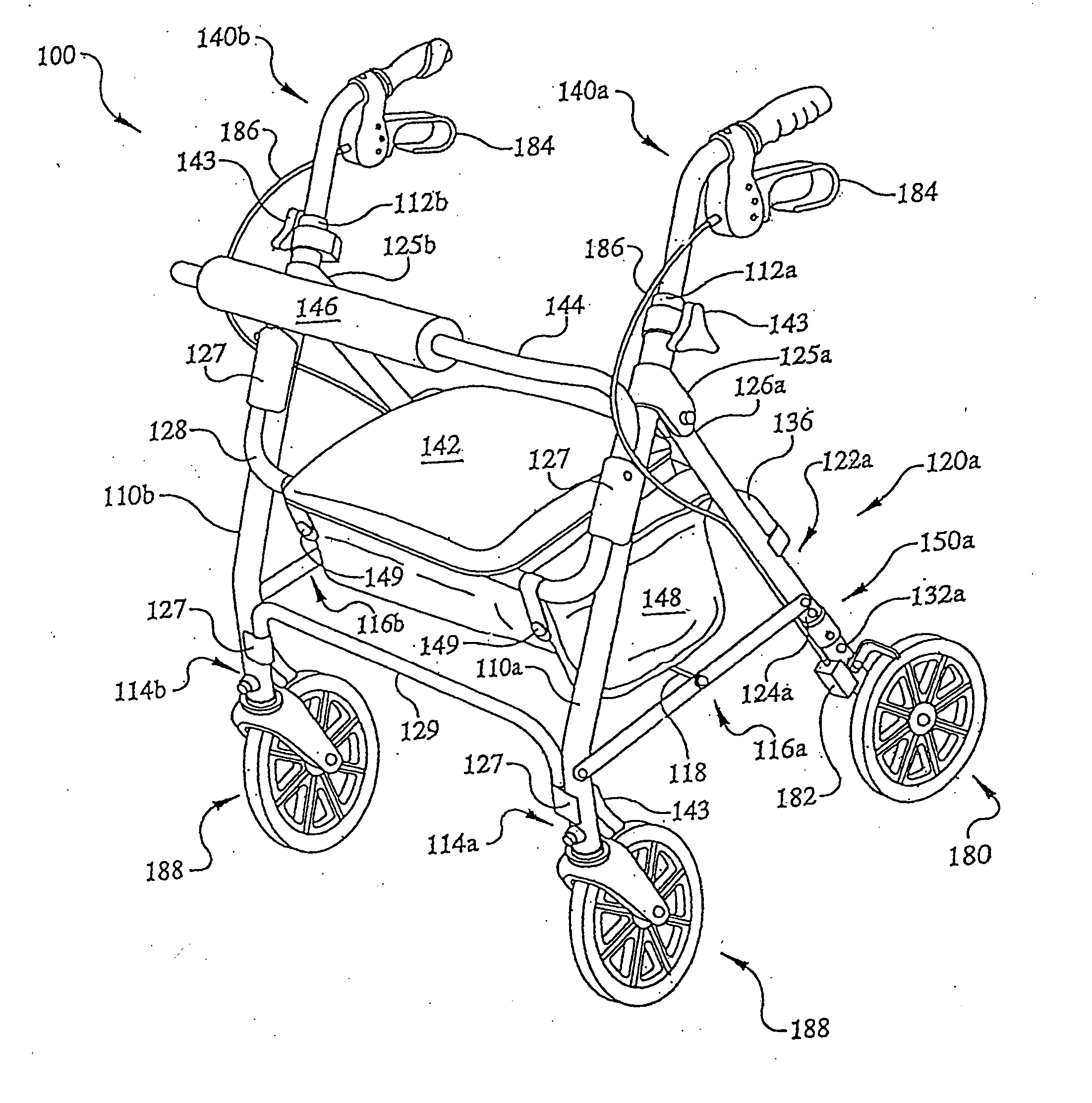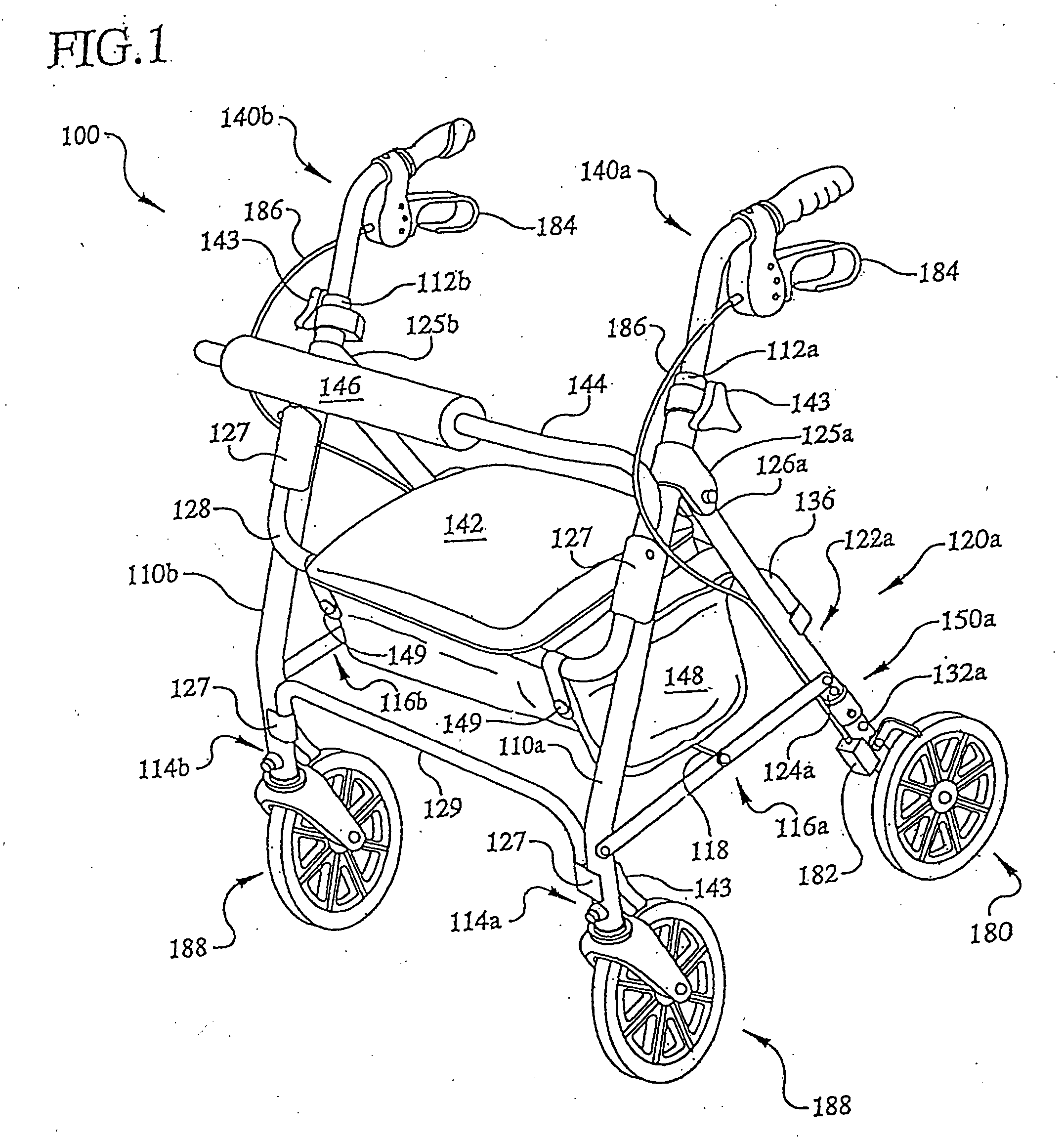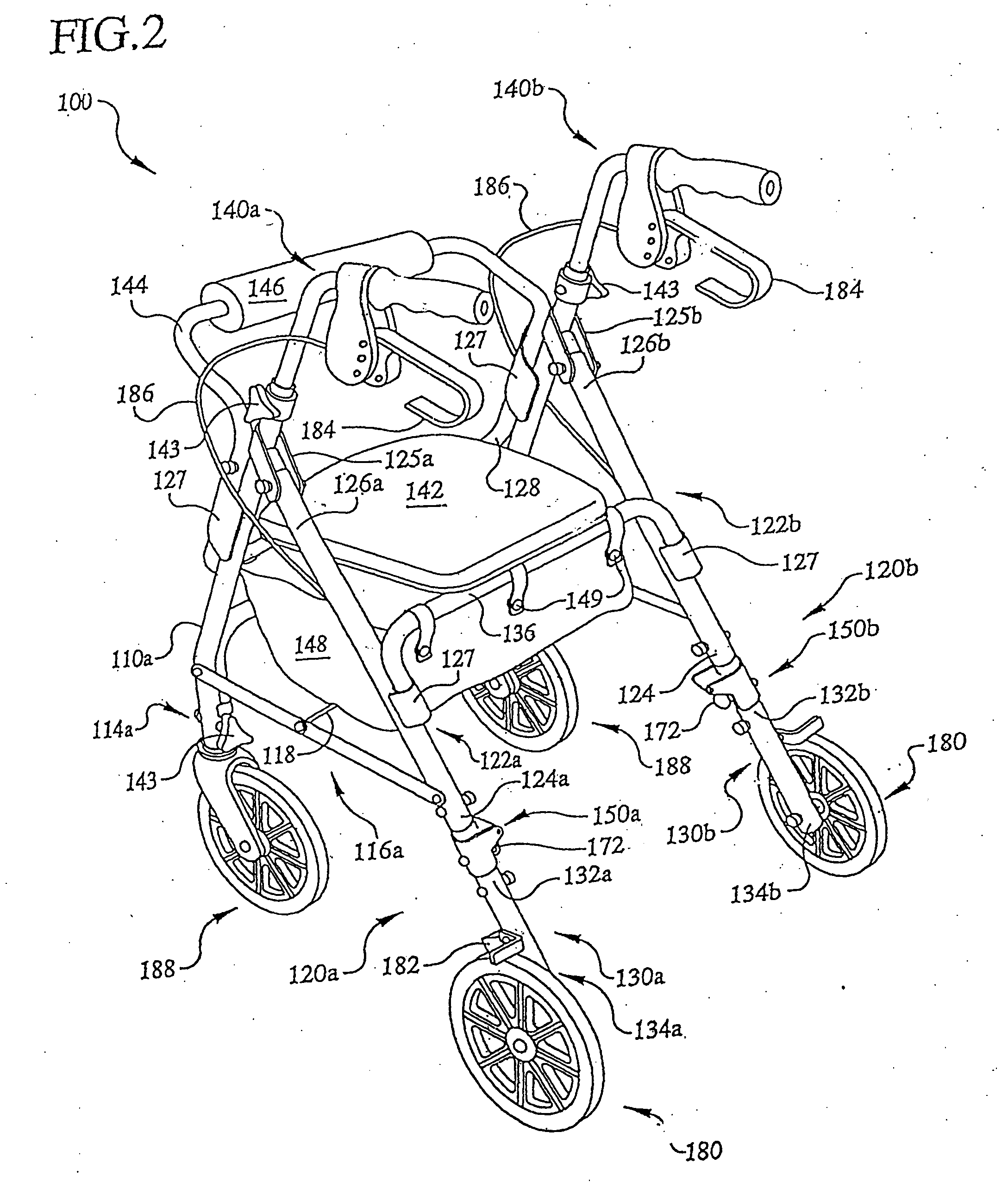Mobile support assembly
a mobile support and assembly technology, applied in the field of mobile support assemblies, can solve the problems of lessening the stability of the walker, affecting the use of the wheelchair, and requiring more sophisticated wheelchair designs, so as to facilitate the access to the chair assembly, facilitate storage, and enhance the versatility of the mobile support assembly
- Summary
- Abstract
- Description
- Claims
- Application Information
AI Technical Summary
Benefits of technology
Problems solved by technology
Method used
Image
Examples
Embodiment Construction
[0067] Referring now in more detail to the drawings, FIGS. 1-3 illustrate an embodiment of a foldable walker 100 in an operative orientation. As shown, the foldable walker 100 comprises a frame at least partially defined by a front leg assembly and a rear leg assembly. More specifically, the front leg assembly comprises a first front leg 110a and a second front leg 110b secured to each other by at least a first cross member 128. The first front leg 110a and a second front leg 110b are each pivotally connected to the rear leg assembly, which comprises a first rear leg 120a and a second rear leg 120b, respectively. The first and second rear legs 120a, 120b each include an upper member or portion 122a, 122b, which in at least one preferred embodiment, are hingedly attached to a respective lower member or portion 130a, 130b by hinge assemblies 150a, 150b, respectively, as is discussed in greater detail hereinafter. Preferably, the first upper member 122a and a second upper member 122b a...
PUM
 Login to View More
Login to View More Abstract
Description
Claims
Application Information
 Login to View More
Login to View More - R&D
- Intellectual Property
- Life Sciences
- Materials
- Tech Scout
- Unparalleled Data Quality
- Higher Quality Content
- 60% Fewer Hallucinations
Browse by: Latest US Patents, China's latest patents, Technical Efficacy Thesaurus, Application Domain, Technology Topic, Popular Technical Reports.
© 2025 PatSnap. All rights reserved.Legal|Privacy policy|Modern Slavery Act Transparency Statement|Sitemap|About US| Contact US: help@patsnap.com



